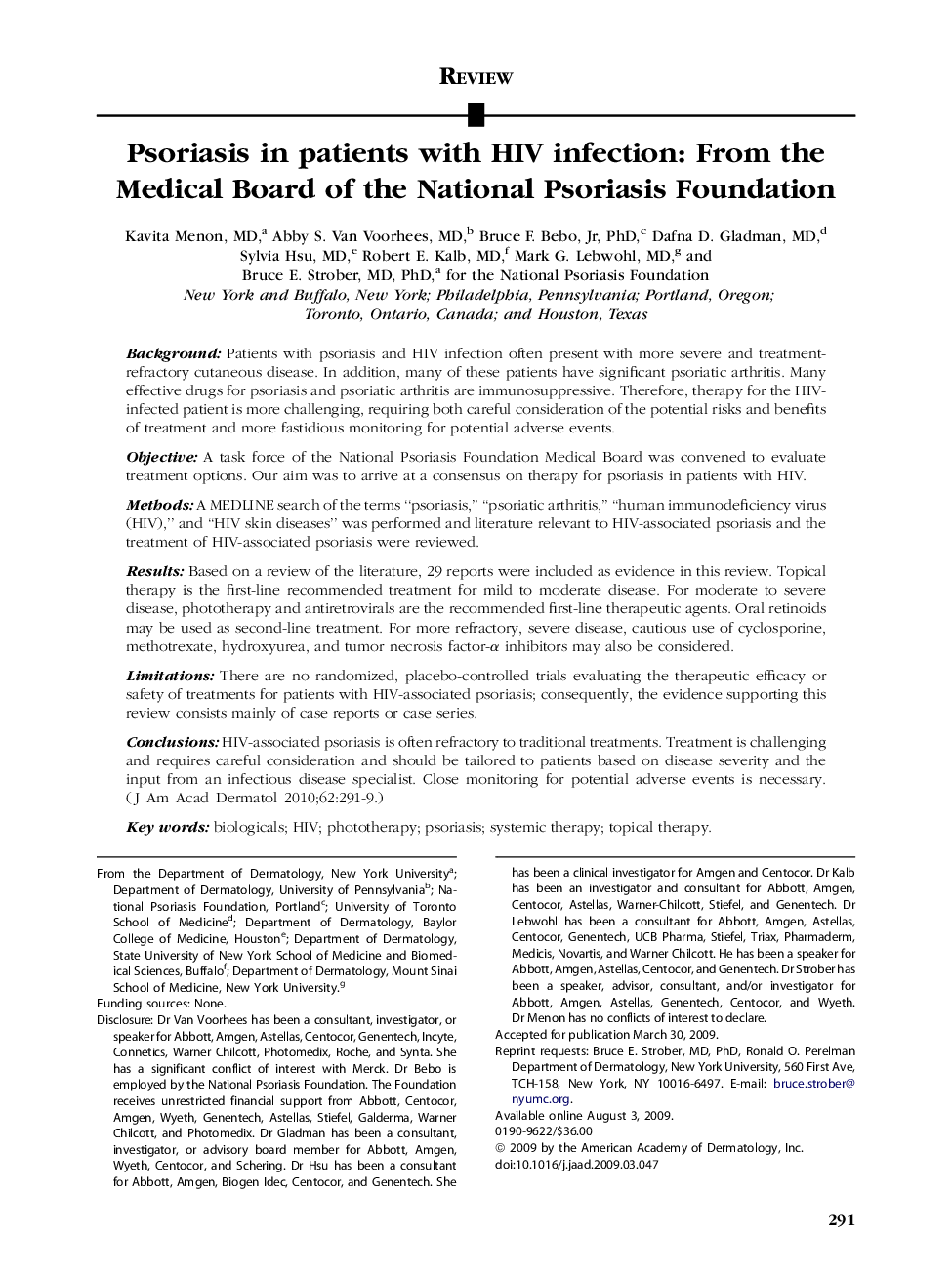| Article ID | Journal | Published Year | Pages | File Type |
|---|---|---|---|---|
| 3208698 | Journal of the American Academy of Dermatology | 2010 | 9 Pages |
BackgroundPatients with psoriasis and HIV infection often present with more severe and treatment-refractory cutaneous disease. In addition, many of these patients have significant psoriatic arthritis. Many effective drugs for psoriasis and psoriatic arthritis are immunosuppressive. Therefore, therapy for the HIV-infected patient is more challenging, requiring both careful consideration of the potential risks and benefits of treatment and more fastidious monitoring for potential adverse events.ObjectiveA task force of the National Psoriasis Foundation Medical Board was convened to evaluate treatment options. Our aim was to arrive at a consensus on therapy for psoriasis in patients with HIV.MethodsA MEDLINE search of the terms “psoriasis,” “psoriatic arthritis,” “human immunodeficiency virus (HIV),” and “HIV skin diseases” was performed and literature relevant to HIV-associated psoriasis and the treatment of HIV-associated psoriasis were reviewed.ResultsBased on a review of the literature, 29 reports were included as evidence in this review. Topical therapy is the first-line recommended treatment for mild to moderate disease. For moderate to severe disease, phototherapy and antiretrovirals are the recommended first-line therapeutic agents. Oral retinoids may be used as second-line treatment. For more refractory, severe disease, cautious use of cyclosporine, methotrexate, hydroxyurea, and tumor necrosis factor-α inhibitors may also be considered.LimitationsThere are no randomized, placebo-controlled trials evaluating the therapeutic efficacy or safety of treatments for patients with HIV-associated psoriasis; consequently, the evidence supporting this review consists mainly of case reports or case series.ConclusionsHIV-associated psoriasis is often refractory to traditional treatments. Treatment is challenging and requires careful consideration and should be tailored to patients based on disease severity and the input from an infectious disease specialist. Close monitoring for potential adverse events is necessary.
